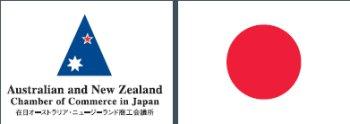Exclusive Interview: Dr Greg Story
 Dr Greg Story, Chairman, the Australian New Zealand Chamber of Commerce in Japan
Dr Greg Story, Chairman, the Australian New Zealand Chamber of Commerce in Japan
By Peter Harris
J@pan Inc talks to the Chairman of the Australian New Zealand Chamber of Commerce in Japan (ANZCCJ).
What is the history of the ANZCCJ?
The Australian Chamber was founded in 1972 but then, in around 1990, the New Zealand (NZ) embassy approached the Chamber and suggested a tie-up with the NZ business community. In the spirit of ANZAC, this idea was embraced and seemed to make sense on a number of cooperative levels. The Chamber is fully independent although it enjoys the support of both the embassies; for example, they help bring us leading politicians as speakers and help out with providing venues.
What is the breakdown of your membership?
We have 600 members. The members are roughly 50% Australian, 20% NZ, 20% Japanese and then a number of other countries are represented.
What characterizes the ANZCCJ?
In terms of the ratio of the number of events to members, it is the most active chamber. We have speeches, dinners and networking events. In a sense, this high energy level reflects the diverse interests of the membership so we have had speakers ranging from the Australian Minister for Trade to Ian Thorpe, the swimmer.
What does the Chamber do to support business activities?
We have a small incubation facility inside the Chamber’s headquarters in Tokyo—a space for companies who want to get into the market but are as yet unable to pay commercial rents or have a need for substantial space. We also work closely with the Australian and NZ governments in terms of lobbying. This relates to tax issues, negotiating the FTA, pensions and so on—we provide muscle for lobbyists.
Since the change of administration in Australia, has there been any shift in policy towards Japan? There was a lot of media hype about how Rudd was more interested in China and that this might lead to a cooling of Australian- Japan relations. In reality there is nothing in this. Mr Fukuda and Mr Rudd have a good working relationship although they were both constrained by other domestic and international pressures at the start of their respective premierships and were thus unable to meet early on. However, Rudd was in Japan in June this year and will visit again in July. The policy pegs of the US alliance, the alliance with the UN, and greater engagement with the Asian region have held strong.
Furthermore, we recently had a Japan-New Zealand partnership event that was very successful in terms of promoting a deeper dialogue; from our perspective we have seen no evidence of any deterioration of the relationship between Japan and Australia & NZ. On the contrary, political and business cooperation seems to be continuing to progress. The media focus on Rudd’s Chinese language capabilities misses the point—he is a Prime Minister who speaks an Asian language, and also studied Japanese and Korean history, and that in no way implies a detrimental bias towards China. Moreover, the synergy between Australian and NZ produce and resources and Japanese infrastructure investment has led to economic cooperation that has gone alongside political amity.
How important are educational and language exchanges to the development of ANZ-Japan relations?
Since the 1970s schools in NZ and Australia have been proactive about teaching not just Japanese but a wide variety of Asian languages, and this is symbolic of a growing political and economic commitment to the region. The postwar antipathy to Japan gave way to a rebirth of the relationship which had business at its heart, and it is of massive benefit to ANZ-Japan relations that there is an ever increasing number of Japanese language-capable people from the two countries.
What brought you to Japan?
I’m in Japan because of Osei Koichi—the Japanese actor who starred in a program called ‘The Samurai,’ dubbed into English and aired on Australian TV in the 1960s. I just loved it when I was a teenager. It was so different to everything else and it created a fascination with Japan. At high school we studied the Meiji period and I found that intriguing as well. And then, I became interested in karate when I was 17 and this had a huge impact on me—I knew I wanted to pursue it more seriously and managed to get to black belt within 19 months. Ultimately, karate gave me the confidence to enter academic life where I read Asian studies and came here initially during the course of my studies. I went to Griffith University which was cutting-edge in terms of the Asian-focused courses that it offered and ultimately ended up coming to Japan on a Japanese government scholarship and completed a Masters at Jochi (Sophia) University where I made real progress with the Japanese language. I then returned to Australia, and after another 18-month stint in Japan for fieldwork, eventually completed my doctorate back at Griffith on Sino-Japanese relations.
And what has been the course of your career in Japan?
After I finished my PhD, I started a Japan business consultancy but was headhunted after a year by Jones Lang Wooton (now Jones Lang LaSalle). Then I worked for Austrade (The Australian Trade Commission) for a few years opening its new operation in Nagoya—it was a very challenging time and the four and a half years I spent there were the toughest I’ve had in business. I then moved to a more senior position in Osaka and then in Tokyo. After that I was headhunted by Shinsei Bank where I was asked to help perform a turnaround in the sales area. Four years after that, I was recruited as Country Head of National Australia Bank. JI
|
Chairman: Dr Greg Story Founded: 1972 Members: 600 2005 Bilateral Trade Figures Australia-Japan: Total exports to Japan from Australia: Total imports to Australia from Japan: FDI from Japan to Australia: Japan is the third largest investor in Australia Total imports/exports to and from NZ/Japan: |
Large Australian companies in Japan: Qantas Meat & Livestock Australia NAB ANZ CBA Macquarie Servcorp Babcock and Brown BHP Biliton Hokkaido Tracks Bovis Lend Lease Murray Goulburn Cooperative North West Shelf Village Cellars Wesfarmers Aristocrat Large NZ Companies in Japan: Fonterra Zespri Air New Zealand ANZCO PPCS Sanfords Sealord Value Commerce |







Comments
SamuelR
January 16, 2010 - 22:22
Permalink
Interview
Quote:
Since the 1970s schools in NZ and Australia have been proactive about teaching not just Japanese but a wide variety of Asian languages, and this is symbolic of a growing political and economic commitment to the region. The postwar antipathy to Japan gave way to a rebirth of the relationship which had business at its heart, and it is of massive benefit to ANZ-Japan relations that there is an ever increasing number of Japanese language-capable people from the two countries.
Interesting.. I wasn't aware of such history. Great interview!
Samuel